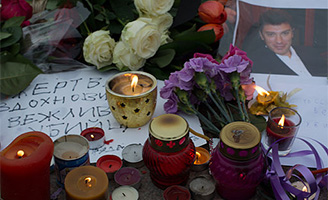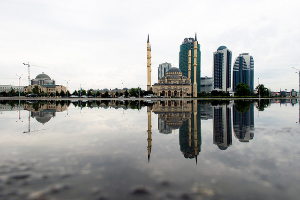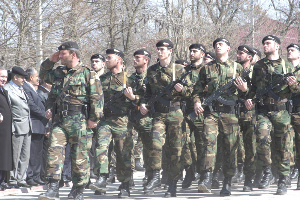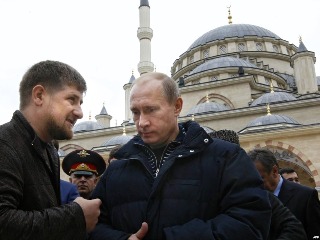CACI Analyst, March 18, 2015
CACI Analyst, March 18, 2015 (.pdf)
Contents
Analytical Articles
TURKMENISTAN POISED FOR TAPI BREAKTHROUGH, by Micha'el Tanchum
NEMTSOV'S ASSASINATION AND THE CHECHEN TRACE, by Emil Souleimanov
RUSSIA TO STRIP ABKHAZIA AND SOUTH OSSETIA OF THEIR LIMITED SOVEREIGNTY, by Valeriy Dzutsev
ARMENIA'S RULING PARTY CONSOLIDATES POWER, by Armen Grigoryan
Field Reports
KYRGYZ CRIME BOSS MURDERED IN MINSK, by Arslan Sabyrbekov
GEORGIA FACES ECONOMIC CRISIS, by Eka Janashia
TAJIKISTAN'S ELECTIONS EXPEL OPPOSITION FROM PARLIAMENT, by Oleg Salimov
ARMENIA TO PARTICIPATE IN BAKU 2015 EUROPEAN GAMES, by Mina Muradova
Nemtsov’s Assassination and the Chechen Trace
By Emil Souleimanov (03/18/2015 issue of the CACI Analyst)
After the murder on February 27 of Russian opposition leader Boris Nemtsov, a group of Chechens allegedly led by a former kadyrovets, have become the main suspects of the ongoing investigation. Whatever the outcome of the trial, the “Chechen factor” in general and Ramzan Kadyrov’s increasing role in Russia's internal and external affairs in particular, seem to establish a pattern that could leave an imprint on Russian politics for years to come.

Attacks in Grozny Unlikely to Revive the Chechen Insurgency
By Emil Souleimanov (12/10/2014 issue of the CACI Analyst)
On December 4, a group of Chechen insurgents in three vehicles, despite being detected in the outskirts of Chechnya’s capital city, carried out an unprecedented attack on Grozny. After hours of fighting, insurgents, isolated in the republic’s Press House building and a nearby school, situated in the city center, killed 14 and wounded three dozen local policemen. In turn, 11 insurgents were killed. The December 4 attack raised questions about the strength of the Chechen insurgency and the capability of local authorities to stem it. With a three years’ break, the insurgency has been ongoing for two decades.

Chechen Units Deployed in Eastern Ukraine
By Emil Souleimanov (06/04/2014 issue of the CACI Analyst)
News has recently spread of the involvement of Chechens in the Ukraine crisis. According to numerous eyewitnesses, members of Chechen elite units, commonly known as kadyrovtsy, were spotted in the eastern Ukrainian city of Donetsk where they were reportedly deployed in combat against local Ukrainian troops. Soon, sources in Chechnya started informing of dozens of corpses of Chechens being transported from Ukraine back to this North Caucasian republic. The participation of the kadyrovtsy units in military operations outside the North Caucasus indicates a novel trend that could have broad security implications transcending the region’s borders.

New Anti-Terrorism Law to Target Families of North Caucasus Insurgents
By Huseyn Aliyev (the 11/12/2013 issue of the CACI Analyst)
New legislation adopted by the Russian parliament in November, aimed at punishing families and relatives of terrorist suspects, intends to legalize the “hard” form of counter-insurgency already practiced in several North Caucasus republics. The new law allows authorities to confiscate the assets of suspected terrorists' family members, and obligating them to compensate for damages incurred by those acts. The new legislation entered into force on November 17 and although it has not yet been implemented in practice, the collective punishment practices it permits are already used by authorities across the restive North Caucasus.






